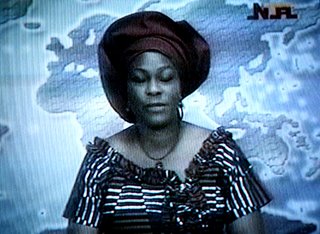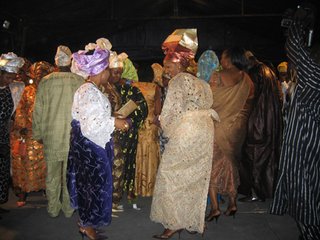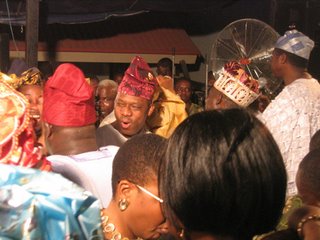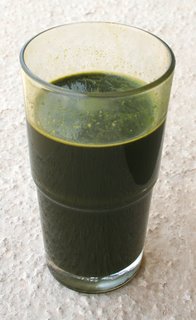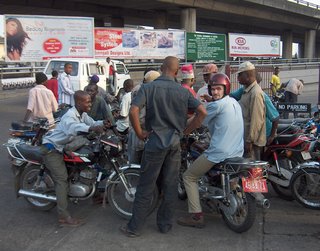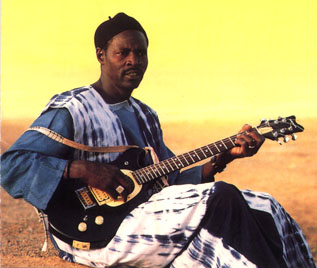Which of dem we go speak? …
One metre --
We travel to Umunede, we go speak Isoko,
We travel to Borno, say na Fulfulde,
We travel to Ughelli, dem go speak Urhobo,
We travel to Buguma, say na Kalabari,
We travel to Kaduna, dem go speak Hausa,
We travel to Okene, dem go speak Ebira,
We travel to Abbi, dem go speak Kwale,
Ogomola, dem go speak Okrika,
One kilometre means another language,
half a kilometre means another language, …
One metre …
We travel to Sokoto, dem go speak Fulani,
We go to Benin City, dem go speak Edo,
We travel to Onitsha, dem go speak Igbo,
We travel to Asaba-Asa, den Bendel we go,
We travel to Gboko, dem say na Tiv,
We travel to Otukpa, dem go speak Idoma,
We travel to Akure, dem go speak Yoruba,
We travel to Ase, dem go speak Aboh,
We travel to Uyo, na Ibibio,
We travel, we travel, we travel travel travel …
All I'm saying, Lingua franca …
One metre …
We travel to Patani, dem go speak Izon,
We travel to Vom, dem go speak Berom,
We travel to Ekpoma, dem go speak Esan,
We travel to Auchi, dem go speak Etsako,
We travel to idah, dem go speak Igala,
We travel to Bida, dem go speak Nupe,
We travel to Ogbakiri, dem go speak Ikwere
One question that's bugged me since I moved to Nigeria is how many different ethnic groups and distinct languages there are in the country. We hear different figures in different reports, without anyone ever quoting an official originary reference point. The World Bank and the UN like to suggest 250 in the documents I've seen, but I heard once that there are something like 200 languages in Niger State alone (that seems scarcely creditable however). According to the Index of Nigerian Languages (Crozier & Blench 1992) there are 500 extant languages. I've scoured the internet and found very little of substance. There are 478 languages listed here (helpfully categorised into language group) from Abanyom to Zumbun. This page was created by Dr. Uwe Seibert, Department of Languages and Linguistics, Faculty of Arts, University of Jos (email address [email protected]). However, it does not enumerate how many speakers there are for each language, how many separate dialects there are within each language (how many dialects of Yoruba are there, for instance?) nor does it state whether there is isomorphism between distinct languages and distinct ethnicities.
We therefore still do not know (and the census again will sadly not help us) how many living sustaining ethnic groups there are across this vast and polymorphous terrain. We therefore do not know which cultures are endangered and where (or what factors are leading to their potential extinction). In an increasingly homogenised world, cultural diversity is an inherent value within humankind that needs to be supported. I wonder if Dr Seibert is still carrying out his research, and whether there might be a tie-in with a well-funded African American/Black Studies programme overseas for this valuable research. Wouldn't it be wonderful to have a website with all the languages of Nigeria available to listen to?
Read more...



